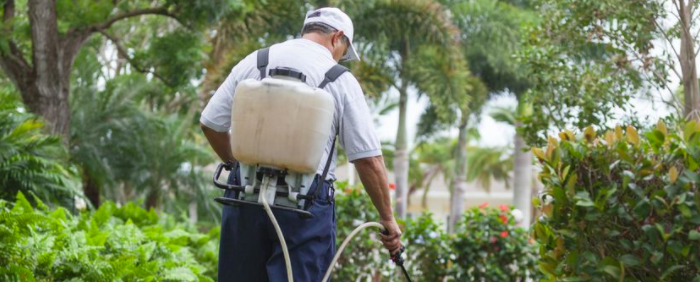
Most commercial products to kill pests are not good for you either. Exposure to pesticides can cause neurological problems, depression, respiratory problems, cancer, fatigue and reproductive problems. Yet Sunday gardeners use 3 times more pesticides than farmers. These chemicals are runoff into streams, rivers and watersheds, destroying animals and their habitats. In addition, some 70% of non-organic fruits and vegetables are contaminated with at least one pesticide.
Fortunately, there are less damaging ways to fight pests that nibble their way through your crops. They are also cheaper than commercial pesticides. Here are some to try at home:
1. Spearmint aerosol, pepper and horseradish spray.
Mix cup of each ingredient: red peppers, fresh mint, horseradish and green onion tops with a little water. Filter the solution and add 2 L (1/2 gallon) of water and 1 tsp. non-toxic liquid soap. Spray the attacked plants and make sure to replace them after a thunderstorm.
2. Dish Detergent / Vegetable Oil
This combination is particularly good for eliminating white flies, spider mites and aphids. Mix 1 tbsp. of liquid liquid dish detergent with 1 cup of vegetable oil. Shake vigorously and add 1 L of tap water. Use it every 10 days as an insect spray on carrots, celery, cucumbers, eggplants, peppers, vegetables, etc. Spray the mixture directly on the insects.
3. Diatomaceous earth
Available in garden centers or aquarium stores, this natural compound is made from the sharp remains of tiny fossilized plants. Sprinkle your garden and when insects come for a walk, the sharp edges will cut their exoskeleton, killing them.
4. Garlic and mineral oil
Chop 10 to 15 cloves of garlic into small pieces and soak in 1 L of mineral oil overnight. Keep only the oil, spray directly on infestations.
5. Against slugs and snails
Arrange small containers with beer around your garden. Snails and slugs will come to drink, get drunk, fall into the beer and drown.